No products in the cart.
Join Our WhatsApp Community and Enjoy Exclusive Benefits!
Click Here
Join Our WhatsApp Community and Enjoy Exclusive Benefits!
Click Here
Join Our WhatsApp Community and Enjoy Exclusive Benefits!
Click Here
HOMEMADE CRUNCHY GARLIC & SAMBAL PUCUK UBI ( UMMI ) by Qaseh Maya Legacy - MY Delivery
From: £3.00
27 people are viewing this product right now
In stock
A delectable selection of some traditional homemade condiments.
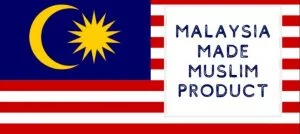
What is Pucuk Ubi
Pucuk Ubi (Malay for “cassava leaves”) is a vegetable dish commonly found in Malaysia, made from pounded cassava leaves. The cassava leaves are traditionally pounded with a wooden mortar and pestle, although finely chopping or puréeing them using a blender or food processor is an alternative.
The dish is commonly found throughout Malaysia. Cassava is a vegetable that is a staple ingredient of many diets worldwide. It is a good source of nutrients, but people should avoid eating it raw. Sambal Pucuk Ubi by Qaseh Maya has made it into delicious sambal, they cook it thoroughly with precision and love. The sambal has a sweet and spicy taste that makes want to for more.
Pucuk Ubi is a rich, affordable source of carbohydrates. It can provide more calories per acre of the crop than other cereals, which makes it a very useful crop in the developing world. People prepare and eat cassava in various ways in different parts of the world, with baking and boiling being the most common methods. In some places, people ferment cassava before using it, but Malaysian cook it and made into sambal.
Nutritional Value of Cassava Leaves
Cassava is a good source of vitamin C, thiamine, riboflavin, and niacin. The leaves, which are also edible if a person cooks them or dries them in the sun, can contain up to 25 per cent protein.
However, the cassava root does not deliver the same nutritional value as other tuber vegetables.
Tapioca starch is gaining attention as a source of gluten-free flour to make bread and other baked products that are suitable for people with an intolerance to gluten.
Cassava is a source of resistant starch, which scientists suggest can boost a person’s gut health by helping nurture beneficial gut bacteria. Resistant starches remain relatively unchanged as they pass through the digestive tract.
The nutritional profile of 1 cup of raw cassava is as follows:
- calories: 330
- protein: 2.8 grams (g)
- carbohydrate: 78.4 g
- fibre: 3.7 g
- calcium: 33.0 milligrams (mg)
- magnesium: 43.0 mg
- potassium: 558.0 mg
- vitamin C: 42.4 mg
- thiamine, riboflavin, and niacin
Click here to discover much more inspiring Malaysian food products.
| Weight | N/A |
|---|---|
| QASEHMAYA RANGE | Crunchy Garlic (300g x 2), Garlic Spread (200g), Sambal Kentang & Biis (170g x 2), Sambal Tempe & Bilis (180g x 2), Ummi Sambal Pucuk Ubi (250g) |
Be the first to review “HOMEMADE CRUNCHY GARLIC & SAMBAL PUCUK UBI ( UMMI ) by Qaseh Maya Legacy - MY Delivery” Cancel reply
This site uses Akismet to reduce spam. Learn how your comment data is processed.
No product has been found!
Related products
People also bought
Our Services

Authentic Malaysian Products
Select from over 700 Halal & Muslim Malaysian Products.
Secure Payment
Safe & Secure Payment
Support 24/7
Whatsapp 24 Hours Day
SPECIAL PRODUCT
Dendeng Daging (75gram) by Mannas Kitchen - UK Delivery
0 Days
0 Hours
0 Minutes
0 Seconds


![20200306_105529[1]](https://www.halalstreet.co.uk/wp-content/uploads/2020/03/20200306_1055291-scaled-scaled.jpg.webp)






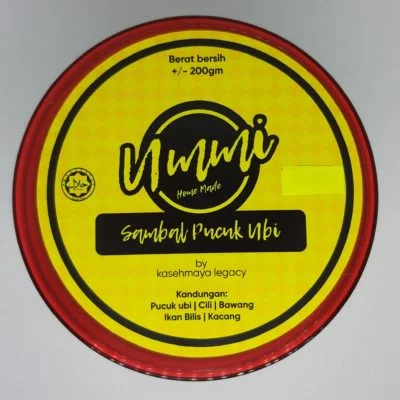
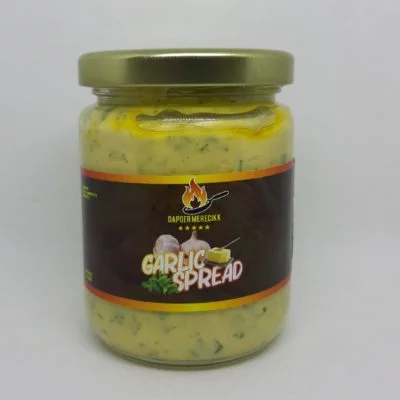








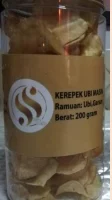
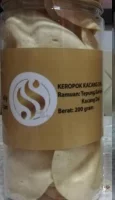




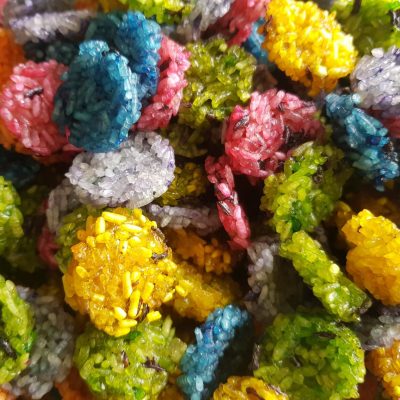
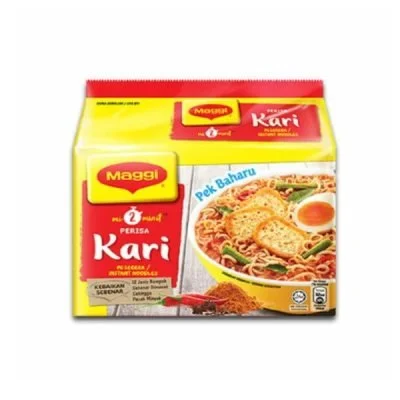



Reviews
There are no reviews yet